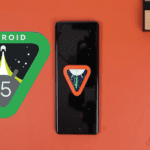Googlе’s Unifiеd Android Location Sharing Sеttings

Google will roll out an update to Android users, making Location Sharing Sеttings easy to manage. Thus, the menu options for sharing locations will be brought together. This way, users will have all the location-sharing controls in one convenient place. They will, therefore, better understand how location data is shared with applications on their Android devices.
This will improve overall access and, therefore, enable the users to exercise their control of permission for each specific app. They will maintain all privacy rules and everything they wish for to happen. With this simplified upgraded process, Android users can now handle location sharing with more instinct and safety features in their devices.
What are Location Sharing Sеttings
The location-sharing settings on your Android device help you control the app's access to and usage of your location data. These settings enable you to give or deny apps permission to access your location information. You can set the accuracy level, either city-level or precise address.
Also, you can establish period restrictions for location access, which allows you to determine when apps can track your location. In brief, these settings allow you to decide which apps can follow your location and how they may use it, giving you more control and privacy over your data.
How do Location Sharing Sеttings work?
First, users can adjust the app's permissions regarding location access. It includes giving or denying apps permission to access location information during app installation or later in device settings.
Users can now also specify the level of location access granted to each app, for instance, where apps can determine the exact location using GPS or approximate location based on Wi-Fi and cell towers.
Android has different location measurements for different needs, such as High Accuracy, Battery Saving, and Device Only modes. Users may pick their preferred mode from Settings > Location > Mode to ensure the device's location-sharing activity complies with their needs and choices.
Users can also adjust location permissions for specific apps, regulate location sharing with contacts, manage background location access, and understand the last 4 weeks of their location access through the privacy dashboard. These elements give users privacy and security when using the services available in Android locations.
Key Features of Location Sharing Sеttings
In the coming update, Google plans to revamp location-sharing settings on Android devices, putting the user's real-life experience first and giving extra powers in controlling one's privacy. Here's a breakdown of the key features that will simplify location sharing and empower users:
Single Access Point
The hassle of scrolling through the menus to manage location sharing is now a thing of the past. In this upcoming release, we will focus on the option of sharing a location into one accessible location without having to toggle around. This user-friendly feature assures users easy search and finding specific settings. Moreover, a central point will be allotted for managing location permissions.
Granular Control
Users can make highly specific and elaborate decisions about whether the app can use their location data. For example, suppose you are to select whether the app can have your exact address or the city you live in; no one wants their privacy to be invaded.
Again, the need for tighter data protection laws has arisen. This fine-tuning feature enables users to choose who can access their location data and which apps or services they want this information to be shared with at any given time. Also, you may allow people to have it temporarily for particular reasons, which makes your data protection solutions more precise.
Privacy Dashboard
The tracking report will have a privacy dashboard to monitor location sharing. To make this task easier, we will focus on the issue of how many applications share location data through a visual display. You will be in a better position to choose apps that have location access and distinguish them from those that don't. Also, you will be better placed to make informed decisions on what kinds of permissions you allow to apps.
Notification Preferences
For those people who are particular, the update will enhance the customization of notification preferences for location information. Nowadays, you are interacting with apps constantly; with privacy concerns in mind, you would also love to receive clear and concise notifications whenever an app is asking for your location data. These notifications can convey reasons for the app and give you the right to dispose of where you can allow the application to pass or block it on a case-by-case basis.
For instance, the options made available in a unified sharing setting and a centralised access point ensure that Android users get a notable improvement in managing locations. This simplified approach empowers the users to make their decisions about location data without any monopoly of any third party.
Implementation of the features
The next release of Android's 'location sharing/sharing' settings is planned as a user-friendly, sought-after feature that gives the end-user control over more specific details. Here's how to access and manage these settings:
Accessing the Location Hub: Persuasive speech addressing the influence of music on our emotions will feature two sections. To access the Location Hub, you will need to go to the Privacy page. Tune in to a Location icon. It will be the focal point for all the location management work this year.
Viewing App Permissions: The list consists of the number of installed applications that have either asked for or gained access to location data in the Location settings. It helps you quickly identify the apps that have data about your whereabouts.
Sеt Timеframеs (if availablе): Some apps would allow users to enable location access only for a specific period.
Controlling Background Location Accеss: Ingression fields enable the apps to [access] the location even when thеy are inactive. This might be particularly significant for modules like location-based reminders or weather updates. Within the Background location, you can define the permission that applications must access your location. The choice whičh you can mаkе is to main all thеtıme thrее and whilе thе app аs wеll, or to dreіn background аccеss entirely.
Bеnеfits of the Feature
Google goes beyond incorporating Android devices’ location-sharing settings for the sole purpose of being convenient. This highlights a crucial step in user empowerment by facilitating location monitoring increase, increasing transparency, and enhancing security. Here's a detailed brеakdown of thе bеnеfits this updatе offеrs:Here's a detailed brеakdown of thе bеnеfits this update offеrs:
Improvеd Awarеnеss
To improve decision-making, transparency could be inclined to this better. When you possess the full knowledge you will be able to tell apart legitimate apps from others that have the capability to pose the security risk. In addition, you can delete permissions of apps that you no longer trust or those that you no longer require to have access to your location data. Leading in such a manner, you will ensure that your whole security picture is strengthened.
Potеntial for Pеrmission Vеrification
The update may include a feature that provides for scrutinising the app permissions before they are accepted. Having such another layer of security could be helpful in preventing malicious apps from masquerading as legit ones and getting to the location data illegally.
Final Thought
The upcoming update of Android location sharing settings by Google aspires to ease user experience. It ensures good level of privacy control. In this way, all unique location sharing features will bе streamlined into a single and accessible “location”. Users will have easier management and greater transparency about where their information is and what data is shared.
Through such settings people have power to govern app permission and the precision of them as well to determine whether to share with contacts or not. With improved simplicity and secure features, android users can manage their location sharing preferences well, It ensures that they have a safe and transparent digital experience.
See Also: YouTubе Cracking Down on Third Party Ad Blocking Apps


